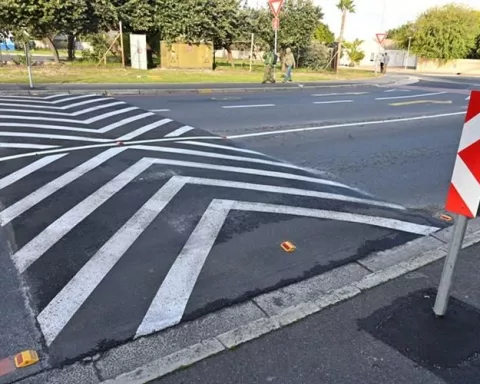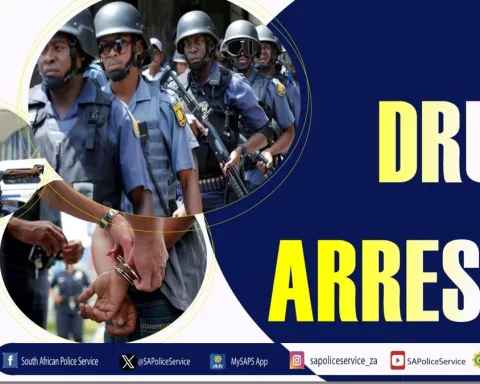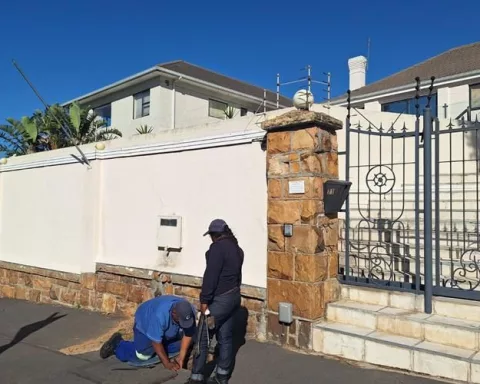Cape Town has strict rules about fireworks, only allowing them with special permits to keep everyone safe and protect nature. Since 2019, there are no longer designated areas for fireworks, which shows the city’s commitment to safety. Residents are encouraged to report illegal sales to help everyone be responsible. While fireworks are loved for their beauty and fun, they can also cause fear and anxiety for some people. As celebrations approach, Cape Town reminds everyone to enjoy responsibly and follow the rules.
What is Cape Town’s policy on fireworks?
Cape Town enforces strict fireworks regulations, allowing their use only with permits. Since 2019, designated areas for fireworks have been abolished to enhance public safety and protect the environment. Residents are encouraged to report illegal sales, fostering collective responsibility for safety.
A Firm Policy on Fireworks
As the lively celebrations of Diwali and Guy Fawkes Night draw near, Cape Town firmly reinforces its strict policy on fireworks, permitting their use only with proper authorization. Since 2019, the city has abolished designated fireworks areas for major festivities, including Diwali, Guy Fawkes, and New Year’s Eve. This decision highlights Cape Town’s unwavering commitment to public safety and environmental protection. Although fireworks-related incidents have slightly decreased over recent years, the issue remains divisive, evoking strong emotions across different sectors of society.
Historically, fireworks symbolize joy and celebration across various cultures, tracing back to their ancient Chinese origins. The dazzling displays are often compared to the works of Impressionist artists, who captured fleeting moments of light and color in their paintings. Yet, like art, the beauty of fireworks lies in the eye of the beholder, and their impact extends beyond mere visual appeal.
In today’s world, fireworks elicit mixed emotions. For some, they bring back memories of childhood wonder and excitement. For others, especially in areas affected by gun violence, they trigger anxiety and trauma. Alderman JP Smith, who oversees Safety and Security in the city, emphasizes this emotional divide. Despite a decline in their popularity, some individuals continue to use fireworks irresponsibly, causing distress among residents and pets.
Navigating the Permit Process
Acquiring a fireworks permit involves a detailed process aimed at reducing potential dangers to public health and safety. Applicants must first secure approval from the South African Police Service (SAPS) under the National Explosives Act. Following this, the Fire and Rescue Service’s Fire Life Safety Section conducts an on-site inspection to ensure the absence of fire hazards. These precautionary steps reflect a systematic approach to risk management, reminiscent of the Bauhaus movement’s balance of functionality and aesthetics in architecture and design.
If an event expects over 200 attendees or requires additional infrastructure, the city mandates an extra events permit. This comprehensive regulatory framework seeks to avert disasters like the Great Fire of London in 1666, which profoundly influenced urban planning and safety measures.
Despite these stringent measures, enforcing fireworks regulations remains challenging. Offenders often evade detection, making it difficult for enforcement agencies to pinpoint their locations or apprehend them. This challenge is similar to trying to capture a shadow, requiring constant vigilance and cooperation from the community.
Community Engagement and Legal Measures
Cape Town emphasizes the role of residents in reporting illegal fireworks sales, underlining collective responsibility for public safety. By targeting the supply of fireworks, the city aims to prevent unauthorized displays. This approach mirrors community-based crime prevention strategies, where grassroots involvement and proactive reporting are crucial for maintaining order.
The legal framework surrounding fireworks includes penalties for setting them off without a permit, selling them to minors, or allowing unsupervised handling by those under 16. These laws aim to protect vulnerable groups, drawing parallels to the child labor laws of the Industrial Revolution, which sought to shield young workers from exploitation.
As the debate over fireworks intensifies, calls for a national ban are gaining momentum. Advocates argue that such a ban would eliminate enforcement challenges and alleviate the psychological distress caused by unauthorized fireworks. This move would align with global trends as cities worldwide address the environmental and health impacts of pyrotechnics.
Embracing Innovation and Future Perspectives
Exploring alternatives to traditional fireworks involves leveraging technology and innovation. Silent fireworks, for instance, offer an immersive experience without the disruptive noise, showcasing how modern solutions can tackle age-old problems. This innovation echoes the spirit of the Renaissance, where scientific and artistic endeavors merged to foster transformative change.
Ultimately, the fireworks conversation in Cape Town touches on broader societal issues, including public safety, community well-being, and environmental stewardship. As residents gear up for forthcoming festivities, the city’s message is clear: celebrate responsibly while adhering to the law. Through collaboration and compliance, Cape Town can ensure that the splendor of Diwali and Guy Fawkes Night is not tarnished by avoidable incidents but instead celebrated as a testament to community spirit and cultural heritage.
“`markdown
What is Cape Town’s policy on fireworks?
Cape Town enforces strict regulations on fireworks, permitting their use only with special permits. Since 2019, the city has abolished designated areas for fireworks to enhance public safety and environmental protection. Residents are encouraged to report illegal fireworks sales to promote community responsibility.
Why were designated areas for fireworks removed?
The decision to eliminate designated areas for fireworks reflects Cape Town’s commitment to public safety and environmental protection. This change aims to reduce potential dangers associated with fireworks, especially given their divisive nature in the community, where they can induce fear and anxiety in some individuals.
How can I obtain a fireworks permit in Cape Town?
To acquire a fireworks permit, applicants must first obtain approval from the South African Police Service (SAPS) under the National Explosives Act. Following this, an inspection by the Fire and Rescue Service’s Fire Life Safety Section is required to assess fire hazards. If an event anticipates over 200 attendees, an additional events permit is also necessary.
What are the penalties for illegal fireworks use in Cape Town?
There are strict penalties for setting off fireworks without a permit, selling them to minors, or allowing unsupervised handling by individuals under 16. These laws are in place to safeguard vulnerable groups and ensure public safety during celebrations.
How can residents contribute to fireworks safety in Cape Town?
Residents play a vital role in ensuring fireworks safety by reporting illegal sales and unauthorized displays to the authorities. This collective responsibility helps to uphold community safety and prevent distress caused by irresponsible fireworks use.
Are there alternative options to traditional fireworks being considered?
Yes, Cape Town is exploring innovative alternatives, such as silent fireworks, which provide a visually appealing experience without the disruptive noise. These modern solutions aim to address the concerns surrounding traditional fireworks, aligning with global trends in public safety and environmental stewardship.
“`












